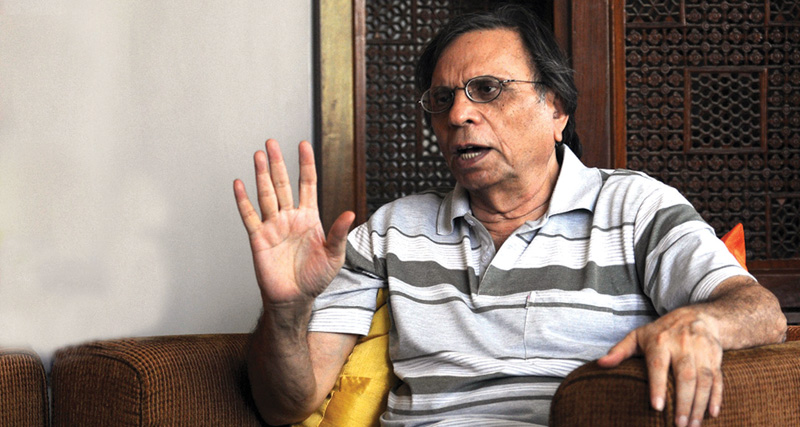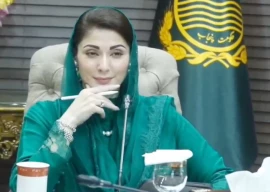
He was addressing a conference, organised by Thaap. His topic was A People’s History of Pakistan.
“One notion about the political history taught in schools and colleges is that it is incomplete. Proponents of this view argue that political history is often written by the victors, the conquerors or simply those in power. So facts are distorted to suit their version,” Ali said.

Dr Ali took the audience through several phases of history, highlighting how those in power had affected the way certain events or personalities were viewed. He began by discussing two important approaches to study history. “The first (approach to history) is through events, which can be falsified or distorted especially in the accounts of those in power. The second is through interpretation of those events,” he said.
Discussing the advent of Mahmud of Ghazna in the subcontinent, Dr Ali said he was revered as a holy warrior by some and hated for being a plunderer by others.
“It is such discrepancies that make history interesting. They need to be looked at and discussed,” he said.
Discussing the Mughal era, Dr Ali went over various episodes to suggest that the changes in Hindu-Muslim relations were influenced by academic literature being produced at the time.
“In the Mughal era, historians were under the patronage of rulers. Akbar secularised the court and ensured that history was not influenced by religion. Later, when historians lost Mughal patronage and parted from the court, they became more critical of the aristocracy. A debate then emerged on whether it was the Mughal dynasty that was in decline or the Indian society,” he said.
“The advent of the British introduced more academic concepts in historiography. Scholars were now taught to edit manuscripts for personal biases and study philology to authenticate sources,” he said.
Citing the example of the Asiatic Society of Bengal, established in 1784, Dr Ali said the British at the time were fascinated by the culture of the subcontinent. “However, there was a shift after the war of independence. The British forbade local historians or scholar from writing about it,” he said. “As the British gained more power, they began to write more on differences between Muslims and Hindus. The History of British India by James Mill is an example of this trend,” he said.
“As the rift between the Muslims and Hindus started to deepen after the failure of the non-cooperation movement in 1924, they turned towards their own religious symbols of power: the Muslims towards celebrating figures like Mahmud of Ghazna and Aurangzeb and the Hindus to those who had defeated Mughal rulers such as Shiva Ji,” he said.
Concluding the talk, Mubarik Ali said that it was important to have an independent research institute to write history immune from political pressures.
“In order to truly write a people’s history, we need to look at various sources such as court disputes, the revenue system and literature to produce an account of history that attempts to be holistic. At the same time, every historian’s account will differ depending on their personal objectives,” he said.
Published in The Express Tribune, December 8th, 2014.





1732012115-0/Untitled-design-(14)1732012115-0-270x192.webp)











COMMENTS
Comments are moderated and generally will be posted if they are on-topic and not abusive.
For more information, please see our Comments FAQ